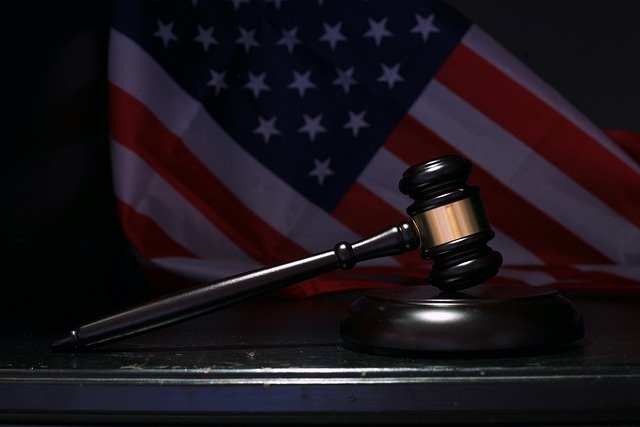Co-founders facing RF regulatory investigations need to understand the multi-stage process, including notices of violation, inquiries, hearings, and potential enforcement actions. By knowing their rights and proactively gathering evidence, they can successfully defend against charges or even have them dismissed. To prevent investigations, businesses should prioritize regulatory adherence through informed decisions, equipment testing, proper licensing, open communication, and ethical practices to avoid white-collar and economic crimes. Effective conflict resolution strategies, centered around open communication and respect for co-founders' contributions, preserve partnerships and enhance prompt, honest issue addressing, reducing the risk of criminal indictment.
“Unraveling RF Regulatory Agency Investigations: A Comprehensive Guide for Co-founders. This article offers a strategic insight into navigating complex RF investigations, designed to protect your startup’s interests. We explore common pitfalls and provide actionable advice on prevention. Moreover, we delve into conflict resolution strategies tailored for co-founders, ensuring effective communication during regulatory inquiries. Understanding these processes is vital for mitigating risks and fostering successful outcomes.”
- Understanding RF Regulatory Agency Investigations: A Co-Founder's Guide
- Common Causes of RF Investigations and How to Avoid Them
- Conflict Resolution Strategies for Co-Founders During Regulatory Inquiries
Understanding RF Regulatory Agency Investigations: A Co-Founder's Guide

Understanding RF Regulatory Agency Investigations: A Co-Founder’s Guide
When navigating the complex world of RF (Radio Frequency) technology, co-founders must be aware that regulatory agencies play a crucial role in ensuring compliance with strict laws and guidelines. These investigations can arise from various issues, including potential violations of regulations related to spectrum usage, interference, or even more serious white collar and economic crimes. As a co-founder, understanding the process is key to effective conflict resolution strategies.
The journey through an RF Regulatory Agency investigation involves multiple stages, from initial notices of violation to formal inquiries, hearings, and, ultimately, enforcement actions. Throughout these processes, agencies may seek voluntary compliance or pursue legal remedies. Knowing your rights and being proactive in gathering evidence can lead to a successful defense, even aiming for a complete dismissal of all charges. This knowledge empowers co-founders to stay informed, make strategic decisions, and protect their interests during challenging times.
Common Causes of RF Investigations and How to Avoid Them

RF Regulatory Agency investigations often arise from various non-compliance issues related to radio frequency (RF) technologies and their applications. Common causes include unauthorized transmissions, interference with other operations, equipment malfunctions, or failures to meet safety standards. These issues can stem from human error, inadequate training, or intentional manipulation for financial gain. For co-founders and businesses, understanding these root causes is crucial for implementing effective conflict resolution strategies and avoiding potential legal pitfalls.
To steer clear of RF investigations, companies should prioritize adherence to regulations at every stage of their operations. This involves staying informed about industry guidelines, regularly testing and maintaining equipment, ensuring proper licensing, and fostering open communication channels. By adopting robust internal controls and promoting ethical practices, businesses can significantly reduce the risk of white collar and economic crimes, thereby safeguarding against potential indictments and ensuring a smooth regulatory landscape.
Conflict Resolution Strategies for Co-Founders During Regulatory Inquiries

Navigating RF Regulatory Agency investigations can be a complex process, especially for co-founders who must maintain a harmonious working relationship throughout. When regulatory inquiries arise, it’s crucial to implement effective conflict resolution strategies. Open and transparent communication is paramount; both founders should actively participate in discussions with legal counsel and agency representatives, ensuring clear understanding of the issues at hand. This proactive approach can help avoid misunderstandings and potential fracturing of their partnership.
Furthermore, focusing on the respective business interests of each co-founder can mitigate conflicts. By recognizing and respecting individual contributions and perspectives, they can make informed decisions that balance regulatory compliance with preserving a robust and collaborative working dynamic. While facing a general criminal defense is a serious concern, avoiding indictment becomes more feasible when co-founders work together to address issues promptly and honestly, fostering an environment of trust and accountability.
RF Regulatory Agency investigations can be a significant challenge for co-founders, but with proactive measures and effective conflict resolution strategies, these inquiries need not derail entrepreneurial plans. By understanding common causes of RF violations and implementing preventive measures, co-founders can significantly reduce the risk of regulatory issues. Moreover, during an investigation, clear communication, transparency, and a collaborative approach to conflict resolution are key to navigating this process successfully. By adopting these strategies, co-founders can protect their ventures and maintain their focus on growth and innovation.






